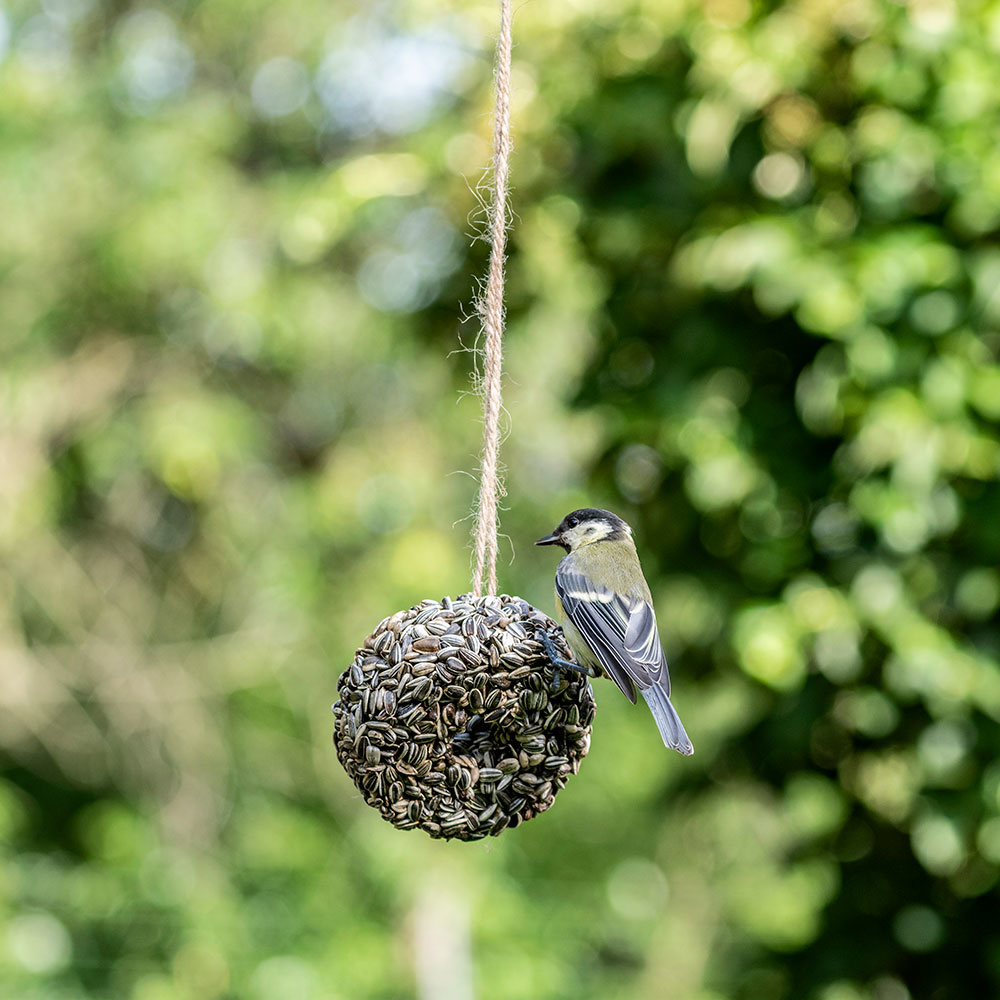Spring Bird Food
Spring is one of the most exciting times for bird lovers. As the days grow longer and temperatures rise, birds become more active, singing, nesting, and raising their young. Read more here.
However, spring is also a demanding season for them. Finding enough food to feed themselves and their chicks can be challenging, especially when natural food sources are still recovering from winter.
Providing the right spring bird food helps birds stay strong, supports their breeding efforts, and ensures young chicks receive the nutrition they need to grow. By offering a variety of high-energy and protein-rich foods, you can attract a wide range of species and contribute to their successful reproduction.
Why feed birds in spring?
Many people assume that birds no longer need supplementary food in spring since insects and seeds become more available. However, spring feeding remains essential for several reasons:
- Energy for nesting and breeding – Birds use a lot of energy to build nests, court mates, and care for their chicks. High-energy foods support them during this demanding period.
- Extra protein for chick development – Young birds need a protein-rich diet to grow strong and healthy. Foods such as mealworms provide the nutrients they require.
- Unpredictable weather conditions – Spring can still bring cold snaps, late frosts, and heavy rains, making natural food sources unreliable. Supplementary feeding ensures birds have a steady supply.
- Support for migrating birds – Many species return from their winter migration in spring. Providing food helps them recover from their long journeys and settle into their breeding grounds.
By offering food throughout spring, you help birds thrive and increase the chances of seeing fledglings in your garden.
Best spring bird food options
During spring, birds require a mix of high-energy foods and protein sources to sustain themselves and their young. Providing a variety of nutritious foods will attract a diverse group of birds to your garden.
Protein-rich foods for breeding birds
Protein is crucial during the nesting season, as it supports egg production, chick growth, and feather development. Some of the best options include:
- Dried mealworms – One of the best protein sources for birds, especially robins, blackbirds, and blue tits.
- Suet pellets with insects – A great alternative to suet blocks, which may become too soft in warmer weather. Suet pellets provide long-lasting energy without melting.
- Soaked sultanas and raisins – These provide natural sugars and hydration but should be offered in small quantities and away from pets.
Energy-boosting seeds and grains
While protein is important, birds also need energy-rich foods to sustain them throughout the breeding season. The best options include:
- Sunflower hearts – A favorite among many species, sunflower hearts are easy to eat and packed with essential oils.
- Nyjer seeds – Ideal for finches and siskins, these tiny seeds provide valuable energy.
- Soft seed mixes – Blended seeds with smaller, softer grains are perfect for birds that prefer easy-to-eat food during spring.
- Oatmeal and millet – These are great for ground-feeding birds such as dunnocks, sparrows, and blackbirds.
What to avoid feeding birds in spring
Not all foods are suitable for birds during the nesting season. Some can be harmful to chicks or may not provide the necessary nutrients. Avoid offering:
- Whole peanuts – Chicks can choke on large nuts. Always provide crushed or finely chopped peanuts.
- Fatty suet blocks – These can become too soft in warmer temperatures, making them messy and less effective. Suet pellets are a better alternative.
Tips for feeding birds in spring
Feeding birds in spring requires some adjustments compared to winter feeding. Here’s how to ensure birds get the most benefit:
- Provide fresh water daily – Birds need clean water for drinking and bathing, especially during warmer days. Keep birdbaths clean and filled.
- Use feeders that suit different bird species – Tube feeders are great for seeds, mesh feeders work well for peanuts, and open trays are ideal for mealworms.
- Place food in safe locations – Avoid feeding birds too close to nesting areas, as predators may be drawn to these locations.
- Keep feeders clean – With more birds visiting your garden in spring, hygiene is essential. Clean feeders weekly to prevent the spread of disease.
- Offer food early in the morning – Birds start feeding early, so having food available at dawn ensures they get the energy they need to begin the day.
By following these tips, you can create a welcoming environment for nesting birds and their young.
Support your garden birds this spring
Spring is a season of renewal, growth, and new life. By providing high-quality spring bird food, you can play a vital role in helping birds raise their young and thrive during this busy period. A well-fed bird is a healthy bird and with the right food choices, you can attract a variety of species to your garden.
Explore our specially selected range of spring bird food and create a thriving habitat for birds in your garden today!



